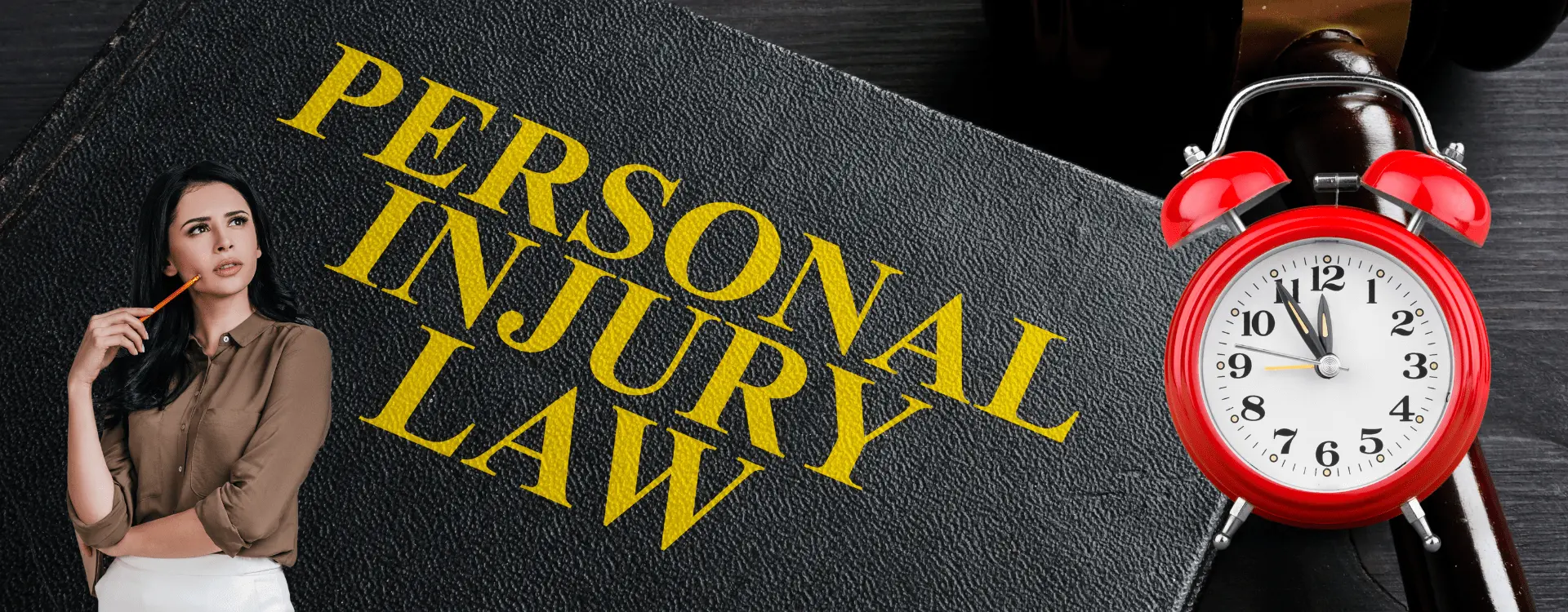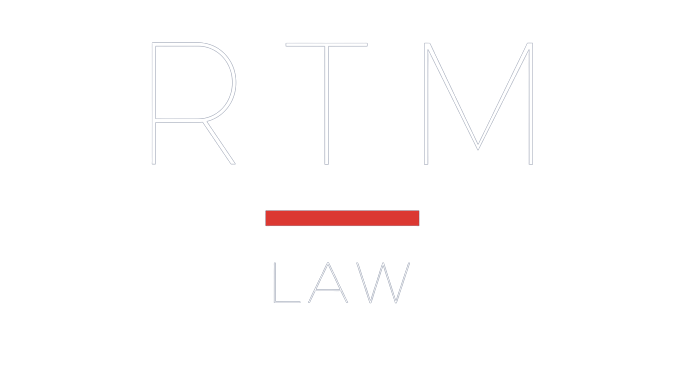What is the Statute of Limitations
in California Personal Injury & How to Not Violate It
In the world of personal injury claims, understanding the statute of limitations is crucial. This legal concept sets a time limit within which a person must take certain legal actions related to their injury. Failing to do so can lead to the claim being permanently barred from court consideration.
The statute of limitations in California exists to ensure that legal cases are built on fresh and reliable evidence. These rules are outlined in the California Code of Civil Procedure and can vary depending on the nature of the injury and when it was discovered.
In this comprehensive guide, we’ll delve deeper into the statute of limitations in California, exploring the timeframes for filing personal injury claims, exceptions, and important considerations to avoid violating these crucial legal deadlines.
Need to speak to a California injury attorney?
NO FEES UNTIL WE WIN. AVAILABLE 24/7.
Understanding the California Statute of Limitations

The statute of limitations is essentially a ticking clock that starts from the date of the injury. In the context of personal injury claims, the legal action required is typically filing a lawsuit. California’s Code of Civil Procedure generally dictates that a personal injury victim must file a claim within two years of sustaining harm.
Two-Year Rule to File a Lawsuit or Claim
According to California law, a personal injury victim has 2 years from the date of their injury to file a personal injury lawsuit. This two-year limitation period is strict, and if you fail to initiate legal proceedings within this time frame, your claim may be permanently dismissed.
If the injury was caused by a government entity, the statute of limitations is drastically different. California Civil Code section 335.1 dictates that a victim must file a claim within 6 months of the date of injury to give the government time to properly investigate and address the situation.
Personal injury accidents resulting in death, however, may have a longer statute of limitations. California wrongful death cases are considered criminal charges, and the time to file a personal injury and criminal lawsuit may vary from case to case.
For example, a wrongful death case against a public entity must typically be filed within six months of the date of death. It is essential to be aware of this variation and seek legal counsel immediately if you believe you have been wrongfully injured or lost a loved one due to another’s negligence.
Time Limit Exception: Discovery of Harm Rule
There is an exception to the two-year rule known as the “discovery of harm” rule. This exception applies when a personal injury victim is unaware of their injury immediately after the incident.
Sometimes, injuries aren’t immediately apparent, and it may take time for victims to realize the full extent of their harm. In such cases, the statute of limitations begins from the date the victim discovers the injury.
Proving the ``Discovery of Harm`` Exception
To benefit from the “discovery of harm” rule, a personal injury victim must demonstrate that they were genuinely unaware of their injury until a later date. This can be challenging, but medical records and documentation can play a crucial role in establishing the timeline of when the injury became apparent.
Medical records may include:
- Doctor’s notes detailing when the injury was first diagnosed.
- Test results showing the extent of the injury.
- Medical bills and treatment history.
These documents can help substantiate your claim that you were unaware of your injury until a later date, potentially extending the time you have to file a lawsuit in court.
Statute of Limitations in California for Government Cases
The statute of limitations for government cases may also be affected by the “discovery of harm” rule. Generally, if the injury was caused by a governmental agency or employee, you may have up to one year from the date of discovery in which a lawsuit must be filed. However, in some states the statute of limitations may have an extended deadline depending on the type of case and circumstances surrounding it.
It is important to speak with a personal injury attorney as soon as possible after discovering your injury to determine how much time you have to pursue legal action and protect your rights. An experienced attorney can review the facts of your case and advise you on the best course of action.
The Importance of Timely Action
in California Personal Injury

It cannot be stressed enough that adhering to the statute of limitations is of paramount importance in personal injury claims in California. Failing to initiate legal proceedings within the prescribed time frame can significantly impact your ability to seek compensation for your injuries.
When the statute of limitations expires, your chances of recovering damages become extremely limited, and you risk losing out on rightful compensation that could help you recover from your injuries, both physically and financially.
Statute of Limitations California:
Avoid Violations & Protect Your Rights
To avoid violating the California statute of limitations, you must take swift action after sustaining a personal injury. Here are some key steps:
- Seek Medical Attention: After an accident or injury, seek immediate medical care. Even if you believe your injuries are minor, still go to the emergency room. A prompt medical evaluation not only ensures your well-being but also creates a medical record of your injuries.
- Consult an Attorney: Reach out to a knowledgeable personal injury attorney as soon as possible. They can provide guidance on your specific situation, evaluate the circumstances surrounding your injury, and help you understand the applicable statute of limitations.
- Gather Evidence: Collect and preserve all evidence related to the incident, such as accident reports, photographs, witness statements, and medical records. These documents can be invaluable in establishing who caused the injury and building a strong case in your favor.
- Document the Discovery of Harm: If you discover your injury after the incident, keep meticulous records of when you became aware of it and any medical consultations or treatments related to the discovery.
- File Your Lawsuit: With the guidance of your attorney, file your personal injury lawsuit within the prescribed time frame from the date of the injury. This will ensure that you meet the legal requirements and protect your right to seek compensation.
RTM Law mainly focuses on personal injury claims but for your reference here is the statute of limitations for some common types of legal disputes:
- Breach of a written contract: Four years from the date the contract was broken
- Breach of an oral contract: Two years from the date the contract was broken
- Property damage: Three years from the date the damage occurred
- Claims against government agencies: You must file a claim with the agency within 6 months of the incident
Contact an Experienced California
Personal Injury Lawyer Today
Understanding the statute of limitations in California is crucial for plaintiffs pursuing a personal injury claim. Knowing the timeframes, exceptions, and the importance of timely action can make a significant difference in the outcome of your case.
Remember, the clock starts ticking from the date of your injury, and missing the deadline can have serious consequences. To navigate this legal landscape effectively, consult with an experienced personal injury attorney who can guide you through the process, protect your rights, and help you seek the compensation you deserve.
Do not wait any longer than necessary to file your personal injury claim, as it will become increasingly more difficult to gather evidence for your case over time. Insurance companies may also refuse to cover anything that happened outside of the two-year window. So, if your injury occurred in California, contact an experienced accident lawyer right away and begin the process for filing a lawsuit before time runs out.
If you have questions about your personal injury case or need legal assistance, reach out to RTM Law.
Don't risk violating the statute of limitations – take action now and secure your future.
FREE CONSULTATION. NO FEES UNTIL WE WIN.
GET A FREE CONSULTATION
We Help Accident Victims File
a Personal Injury Claim in California
Our California personal injury attorneys handle a wide range of personal injury claims in several areas, including:
✔ Anaheim, CA
✔ Bakersfield, CA
✔ Buena Park, CA
✔ Chula Vista, CA
✔ Compton, CA
✔ Costa Mesa, CA
✔ Dana Point, CA
✔ Fountain Valley, CA
✔ Glendale, CA
✔ Huntington Beach, CA
✔ Inglewood, CA
✔ Irvine, CA
✔ Laguna Beach, CA
✔ Laguna Hills, CA
✔ Laguna Niguel, CA
✔ Long Beach, CA
✔ Los Angeles, CA
✔ Mission Viejo, CA
✔ Newport Beach, CA
✔ Orange County, CA
✔ Pasadena, CA
✔ Riverside, CA
✔ San Bernardino, CA
✔ San Clemente, CA
✔ San Diego, CA
✔ San Juan Capistrano, CA
✔ Santa Ana, CA
✔ Seal Beach, CA
✔ Torrance, CA
✔ Tustin, CA
✔ Visalia, CA
✔ Vista, CA
✔ Westminster, CA

